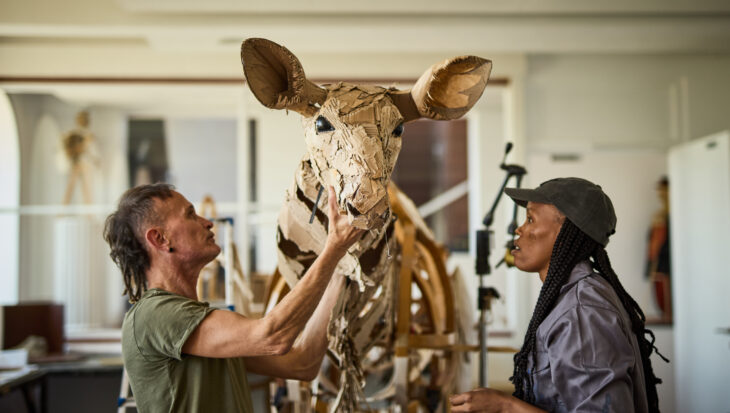‘The Herds’ will be arriving in London this Friday!
Have you heard? A breathtaking arts initiative, ‘The Herds’ will be arriving in London this Friday.
Posted 27 Jun 2025

Posted on the 4th December 2014
Southwell Racecourse witnessed yet another equine fatality on 2 December when seven-year-old Landerbee (IRE) was destroyed after breaking his leg in a ten-horse hurdle race on the venue’s National Hunt course.
Landerbee’s death was the fourth on that course this year. There have been a further seven horse deaths on Southwell’s All-Weather course, bringing the total to 11 and making Southwell one of the most dangerous racing venues in the country.
Like so many race horses who die on racecourses around the country every week, his death has received no mention by either the racing press or the regulatory body, the British Horseracing Authority (BHA). Animal Aid is the only organisation to record and show respect for racing’s equine victims, who are treated as little more than money-making commodities by those involved in the racing and gambling industries.
A large number of racecourse deaths occur that Animal Aid is unable to log, due to the industry’s reluctance to make such fatalities public. However, in answer to a Parliamentary Question last year, racing’s regulator, the British Horseracing Authority, made public the number of on-course fatalities for 2010, 2011 and 2012. On average, around 200 horses were killed during each of those years. The total is more than one-third higher than the number Race Horse DeathWatch recorded (see Notes).
Have you heard? A breathtaking arts initiative, ‘The Herds’ will be arriving in London this Friday.
Posted 27 Jun 2025

As the greyhound racing industry releases its annual data on the number of dogs’ deaths, a raft of well-known names - alongside their canine friends - has called upon the Government to end greyhound racing....
Posted 26 Jun 2025
